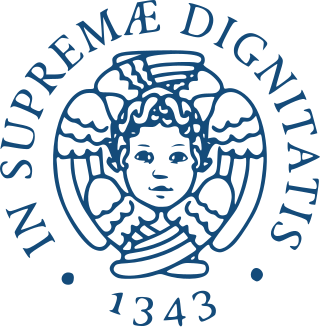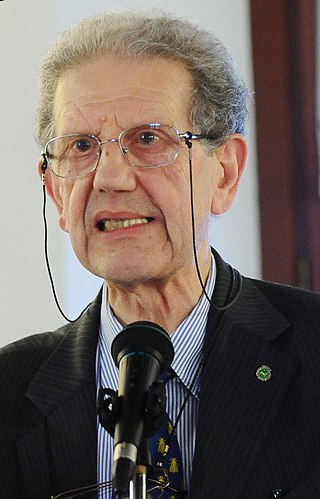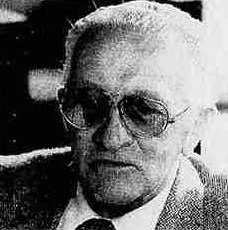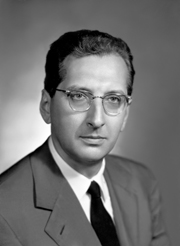
The University of Pisa is a public research university in Pisa, Italy. Founded in 1343, it is one of the oldest universities in Europe.

The Scuola Normale Superiore in Pisa is a public university institution in Pisa and Florence, Tuscany, Italy, currently attended by about 600 undergraduate and postgraduate (PhD) students.

Francesco de Sanctis was a leading Italian literary critic and scholar of Italian language and literature during the 19th century.
The Sant'Anna School of Advanced Studies is a special-statute, highly selective public research university located in Pisa, Italy.
Glenn Warren Most is an American classicist and comparatist originating from the US, but also working in Germany and Italy.
Aldo Giorgio Gargani was an Italian philosopher.

A Superior Graduate School is a completely independent institution from a legal point of view, which offers advanced training and research through university-type courses or is dedicated to teaching at graduate or post-doctoral level.
Mario Rosa was an Italian historian.
Vincenzo Di Benedetto was an Italian classical philologist.
Dante Della Terza was an Italian academic living and working in the United States.

Medea Vittoria Irma Norsa (1877–1952) was an Italian papyrologist and philologist. She headed the Istituto Papirologico Girolamo Vitelli in Florence from 1935 to 1949.
Vincenzo Barone is an Italian chemist, active in the field of theoretical and computational chemistry.

Chiara Frugoni was an Italian historian and academic, specialising in the Middle Ages and church history. She was awarded the Viareggio Prize in 1994 for her essay, Francesco e l'invenzione delle stimmate.

Salvatore Settis is an Italian archaeologist and art historian. From 1994 to 1999 he was director of the Getty Center for the History of Art and the Humanities in Los Angeles and from 1999 to 2010 of the Scuola Normale Superiore in Pisa.
Alessandro Barchiesi is an Italian classicist. A specialist on Latin poetry, he is best known for his work on Horace, Vergil and Ovid. Having spent the majority of his career in Italy and the United States, he has served as a professor of Classics at New York University since 2016.
Gianfranco Folena was an Italian linguist, philologist, and academic.
Maria Timpanaro Cardini (1890–1978), born Maria Cardini, was an Italian philologist who studied the history of ancient philosophy and history of science.

Luigi Arialdo Radicati di Bròzolo was an Italian theoretical physicist

Massimo Mila was an Italian musicologist, music critic, intellectual and anti-fascist.

Cesare Luporini was an Italian philosopher, historian of philosophy and politician.










